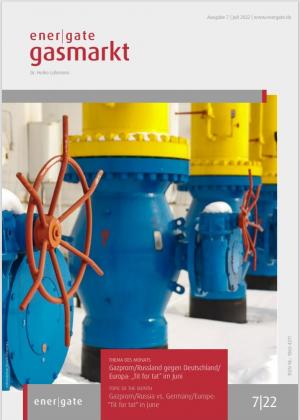Dear readers, whether the tit-for-tat strategic approach from game theory correctly describes the development of European-Russian gas relations is for you to judge. But in June, there were the following moves and parallel counter-moves:
- On 14 June at 12:44, Gazprom announces on its Telegram channel that the flow on Nord Stream has to be reduced from 167 million m³/day to 100 million m³/day. One turbine had not returned to the Portovaya compressor station at the Nord Stream start point after maintenance.
- On 14 June at 16:30, the German government publishes an announcement that the trusteeship for Gazprom Germania will be extended. The company receives a loan from KfW for 9.8 billion euros. It is renamed "Securing Energy for Europe (SEFE)".
- Then, on 15 June at 15:06, Gazprom announces that due to the expired maintenance interval and condition, another turbine at Portovaya would have to be taken out of service. The company says that as of 0:30 a.m. on 16 June, only a gas flow of 67 million m³/day would be possible on Nord Stream.
- On 23 June, the Federal Ministry of Economics and Climate Protection (BMWK) declares an alert (see section 2.1).



